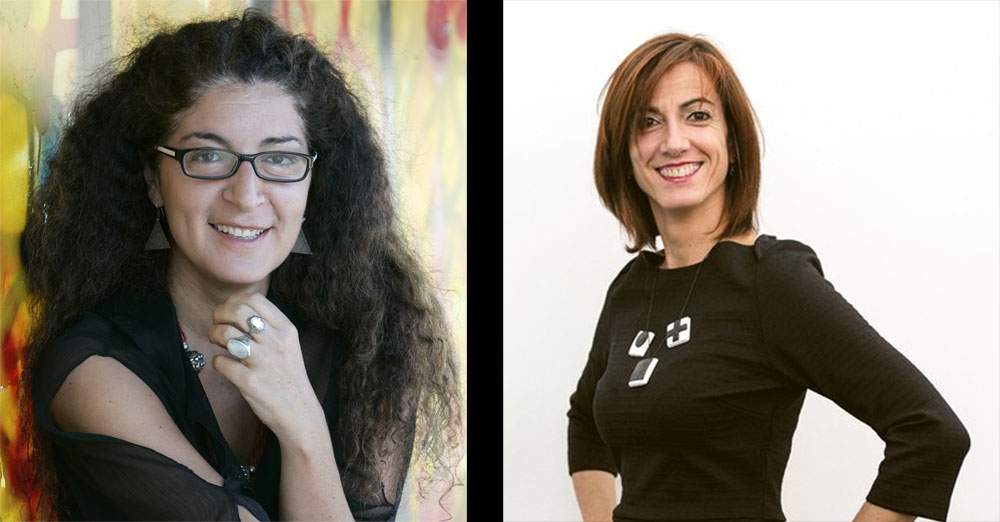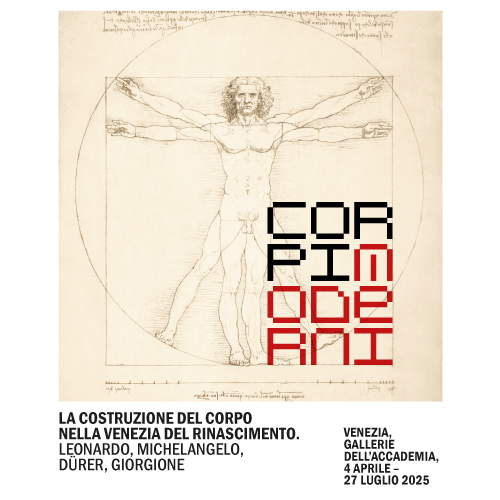Melania Mazzucco and Giovanna Brambilla win the Silvia Dell'Orso Prize 2020-2021
Writer Melania Mazzucco and art historian Giovanna Brambilla are the winners of the 2021 edition of the prestigious Silvia Dell’Orso Prize, which each year rewards the best project in art-historical popularization. The award will be presented in Milan on Dec. 8, as part of the customary ceremony by theSilvia Dell’Orso Cultural Association, organizer of the prize named in memory of journalist and essayist Silvia Dell’Orso (Milan, 1956 - 2009), who dedicated her life to popularizing issues related to cultural heritage. The Prize, in its tenth and eleventh editions (coming together since last year’s delivery was skipped due to Covid), was awarded to Mazzucco for the book L’architettrice and to Brambilla for the book Soggetti smarriti. The Museum to the Visitor’s Test.
So this year the award ceremony will be double and will be held at 6:30 p.m. Dec. 8 at Villa Necchi Campiglio (Via Mozart, 14, Milan, free admission). The Scientific Committee of the Silvia Dell’Orso Cultural Association (composed of Annalisa Cicerchia, Pietro Clemente, Marisa Dalai Emiliani, Francesco Erbani, Vito Lattanzi and Paolo Cavaglione) awarded the 2020 Prize to L’architettrice (Einaudi) and the 2021 Prize to Soggetti Smarriti (Editrice Bibliografica).
Melania Mazzucco’s book L’architettrice, dedicated to Plautilla Bricci, was awarded the prize because, the motivation reads, “it stimulates in the reader the desire for knowledge of a woman to whom in Rome we owe, among other things, a chapel in the church of San Luigi dei Francesi and the Villa al Vascello, but whose name has remained marginal in art history. The desire for knowledge induced by the novel also invests, with competent and limpid writing, the art scene of 17th-century Rome, populated by great figures such as Gian Lorenzo Bernini, Francesco Borromini and Pietro da Cortona and a varied world of workshops and artisans.”
For 2021, the book Lost Subjects. The Museum on the Visitor’s Trial by Giovanna Brambilla is, the association points out, “the result of the author’s 20 years of professional activity in the field of art history and heritage education. To the reader, it materializes a museum interwoven with history but also with emotions mediated by the flow of narratives present in literature and the visual arts, however, never abstracted from its contents and institutional functions.”
Now in its twelfth year, the Silvia Dell’Orso Prize, which consists of an endowment of three thousand euros, is the only award in Italy for those who are committed to rigorous and timely communication of issues related to cultural heritage. “The Silvia Dell’Orso Award,” stresses Paolo Cavaglione, president of the Association, “is the most representative moment of the action that places dissemination at the center of our activities. The Silvia Dell’Orso Cultural Association (Honorary President Salvatore Settis) is the only entity, in Italy, that promotes and encourages correct popularization as an indispensable tool to form in citizens awareness and sensitivity towards their cultural heritage.”
The award was established in 2010, with the first win, of www.patrimoniosos.it. In 2011 and 2018 the prize was not awarded because the nominated projects did not meet the required quality standards. In 2012 Edoardo Salzano won for eddyburg.it, in 2013 Marianna Belvedere and Cristina Cenedella for the book La storia va in scena, in 2014 Enrico Maria Dal Pozzolo and Nino Crescenti for the documentary Indagine su Giorgione (with special mention for Alessandro Sisti and Carlo Limido for the comic strip story Mickey Mouse and the Lost Masterpiece), in 2015 win for Ilaria Baratta and Federico Giannini for work with Finestre Sull’Arte, in 2016 Emanuela Pulvirenti for Didatticarte, in 2017 Studio Azzurro for the museum “Places of Mercury,” in 2019 Lorenzo Nigro for the book Jericho. The Prehistoric Revolution.
Melania Gaia Mazzucco is the author of books such as Il bacio della Medusa (1996), La camera di Baltus (1998), Lei cosí amata (2000, Super ET 2012), about the writer Annemarie Schwarzenbach, Vita (2003, Premio Strega, Super ET 2014), Un giorno perfetto (2005, Super ET 2017), from which Ferzan Ozpetek made the film of the same name. To the Venetian painter Tintoretto he dedicated the novel La lunga attesa dell’angelo (2008, Bagutta Prize), the monumental biography Jacomo Tintoretto & his sons. History of a Venetian Family (2009, Comisso Prize) and the docufilm Tintoretto. A Rebel in Venice (2019), which she conceived and wrote for Sky Arte. In January 2011 she received the Viareggio - Tobino Literary Prize as Author of the Year. She has written for film, theater and radio and contributes to “la Repubblica.” His novels have been translated in 27 countries. His book L’architettrice has as its protagonists Giovanni Briccio, a plebeian genius, opposed by the literati and ignored by the court (he is a mattress maker, painter of little fame, musician, popular playwright, actor and poet), and his daughter Plautilla, educated by him in painting, and launched into the world of art as a child prodigy, imposing on her the fate of virginity. Plautilla, however, a woman and of humble origins, struggled to emerge in the environment of Roman artists, dominated by Bernini and Pietro da Cortona. Her encounter with Elpidio Benedetti, an aspiring writer chosen by Cardinal Barberini as Mazarin’s secretary, will end up changing her life. With the complicity of this unusual traveling companion, she will become much more than her father had dared to imagine.
Giovanna Brambilla, an art historian and ICOM member, is the head of Educational Services at GAMeC - Gallery of Modern and Contemporary Art in Bergamo, where she works on heritage pedagogy and the relationship between museums and the public. She teaches at the master’s courses “Economics and Management of Cultural Heritage” at the Business School of Il Sole24Ore and “Educational Services for Artistic Heritage, Historical Museums and Visual Arts” at the Catholic University of the Sacred Heart in Milan. He is professor of Iconography at the Rosario Gagliardi Academy of Fine Arts in Syracuse. His research interests include the history of collecting and the intertwining of art and society. His essay Lost Subjects. The Museum to the Visitor’s Test is proposed as a tool for moving through the complex triangulation between museums, works and the public from the privileged perspective of heritage education. The themes touched upon are “the indispensable”: the self-referentiality of museums, the need for dialogue among staff members, strategies related to the world of schooling, the fundamental confrontation with the community, planning dedicated to marginal and fragile people, and attention to the languages with which to tell the story of heritage. The intent is to offer an unprecedented look at the creations of links between cultural heritage and people, spanning various fields, with the desire to be not a guide but a compass, not a definitive word, but a crossroads of gazes, making possible the emergence of new research and actions, starting from the intersection of different disciplines and triggering a lively relationship between the many professionalities that work around museums.
 |
| Melania Mazzucco and Giovanna Brambilla win the Silvia Dell'Orso Prize 2020-2021 |
Warning: the translation into English of the original Italian article was created using automatic tools. We undertake to review all articles, but we do not guarantee the total absence of inaccuracies in the translation due to the program. You can find the original by clicking on the ITA button. If you find any mistake,please contact us.





























